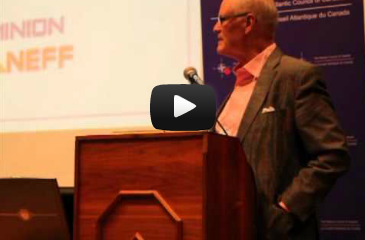“Give a man a fish and he’ll eat for a day, but teach a man to fish and he’ll eat for a lifetime”….or so they say.
This past week the US government signed a deal in Kabul agreeing to support the Afghan government with $4-billion dollars per year for a maximum of ten years following troop withdrawal in 2014. The US has agreed to cough up $2.7 billion per year and is looking to its NATO allies to cover the difference. Upon being questioned on Canada’s expected contribution to this funding, Prime Minister Harper promised to “examine all options.” These options could include continued funding, continued troop training, or possibly both; whatever the outcome may be, it will likely be decided at NATO’s Chicago summit this May.
Ideally, the heads of NATO states will look at the expected outcome following troop withdrawal and will make their decisions in a fiscally prudent and socially responsible manner. The expected outcomes of troop withdrawal varies from the clichéd expectation that “tribal” Afghans will resort back to what they know: violence and oppression under a Taliban pseudo-government; or, out of sheer frustration and in suit with other Muslim countries as of late, will break out in civil war. A more positive outlook sees well-trained Afghan police and military officials maintaining civility and keeping the Taliban at bay. The more unrealistic expectation is that the Taliban will be brought down and Afghanistan will prosper as a free, democratic society.
While the latter two options are preferred, they are also unlikely given the current timeframe for withdrawal and recent green-on-blue attacks where Taliban insurgents infiltrate police and military forces and kill NATO training officers. Given that time is of the essence and NATO countries are struggling to legitimize having troops on the ground until 2014, the obvious solution would then be to throw money at the problem with the hope that doing something rather than nothing and prolonging involvement will lead to an optimistic outcome for Afghanistan.
The question is: what do we do when they run out of fish? One of the biggest complaints about NATO involvement comes from civilians of member states who are pro-withdrawal. From their perspective, we have wasted too much money and too many lives on a mission that has, to date, had little “success.” People are still dying, true democracy has yet to be seen, and what’s worse, Afghanistan is still non-secular. The idea of committing more time and more resources to properly training and supporting incipient forces is beyond our capabilities and far beyond what should expected of our troops after 11 years. That said, wasn’t the goal—at least from Canada’s perspective over the past few years—to enable Afghans to protect themselves, bring about order and civility, run democratic elections, and most importantly, stop sucking the teat of NATO-ISAF forces? Wasn’t the goal to leave Afghanistan better off than where we found it so that future interference isn’t necessary and to avoid the inevitable shaming that will come about if the situation in Afghanistan deteriorates follow troop departure? Were we not teaching Afghans how to fish?
Rather than automatically assuming the loss to Canadians—fiscally or otherwise—by looking at total expenditures to date, we should also stop and look at the cost to Canadians if we leave. Like any investment, one should weigh the actual and expected pros and cons of a decision before planning the next move. It would be naive to think that NATO troops don’t have some vested interest in a democratic and peaceful Afghanistan, whether it be for access to natural resources, trade access to Central Asia and the Middle East, political bargaining, or creating strategic alliances. There are opportunity costs to cutting and running in Afghanistan that are largely ignored in the debate on whether Canada should stay or go and I would be interested to see how Canadians respond when they see the cost of leaving.
Yes, people are dying. But they’re dying on both sides and is that not a casualty of war we knew about prior to our participation? Centering the debate on Canada’s future involvement in Afghanistan on number of troops dead is emotional pandering and not sufficient grounds for leaving. What makes sufficient grounds is looking at costs to date—and yes, you can include the cost of a human life, expected future costs, but also expected gains. There are opportunity costs worth measuring here, for both sides and in a multitude of areas, and we should review these before we make a rash decision fuelled by emotion instead of reason. Emotion is what got the United States into this situation initially, but it shouldn’t be the sole reason for getting Canada out.


